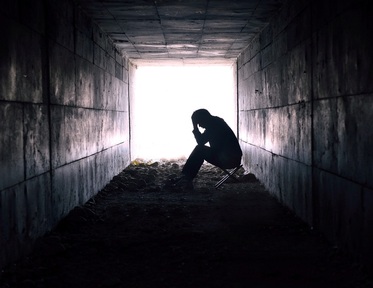Thousands left to cope alone after leaving mental health hospital
One in ten people discharged from a mental health hospital after being admitted in crisis are not getting a follow-up within a week of leaving.

Research published by national charity Mind, has also found that people with mental health problems, who are discharged from hospital, are readmitted within 30 days.
Sophie Corlett, director of external relations at Mind, said: "Thousands of people with mental health problems in England and Wales are not getting the appropriate follow-up when they are first discharged from hospital. This is not good enough. It is a tragedy that so many people so very recently leaving the care of hospital are losing their lives.
"The Government has put suicide prevention as a key patient safety issue for the NHS as a whole and pledged to reduce suicides by ten per cent in the next five years. Timelier follow-up for patients after they leave hospital could help achieve this.
"Whether you’ve been in hospital for days or for months, when you come out you need the right care and support to help you stay well. A vital part of this is having someone make early contact with you to make sure you’re okay and getting the ongoing support you need. Seven days is simply too long to wait when someone’s recovery is still at risk. We need to see a reduction of the follow-up time to 48 hours now."
Mind sent Freedom of Information (FoI) requests to all 56 mental health trusts in England asking for information about how quickly people are followed up after being discharged from hospital.
Follow up – usually a face-to-face visit or a phone call – provides continued contact and ensures that the right ongoing support is in place.
There is growing recognition for timelier follow-up as a key suicide prevention measure, with the House of Commons Health Select Committee recently calling for earlier follow-up after discharge.
Current NICE guidelines recommend a follow-up within 48 hours and Mind is calling for this time frame to extend to everyone leaving hospital after a mental health crisis.
The charity also surveyed over 850 people with mental health problems about their experiences after leaving hospital. The poll showed those who were not followed up appropriately (after seven days or not at all) were twice as likely to attempt suicide and a third more likely to harm themselves compared to respondents who said they were followed up within seven days of being discharged.
Mind’s findings show that the lack of appropriate follow-up is also putting significant pressure on the NHS as people are not getting the help they need to recover. Those not followed up within seven days were more than twice as likely to end up in A&E as a result of their mental health within the first week of being discharged.
Professor Louis Appleby, director of the National Confidential Inquiry into Suicide and Homicide, said: "People leaving hospital can feel unsupported as they return to the problems that may have led to their admission. Those first few days are the time of highest suicide risk - follow up within seven days has helped but we now need to go further. This is probably the most important single step a service can take to improve patient safety."
Dr Paul Brown of the Royal College of Psychiatrists, added: "These figures paint an alarming picture of a system under intense and increased pressure. We hear reports of personnel struggling even to find the time to pick up the phone to follow up on recently discharged patients. It is absolutely vital that we see money promised by the Government going to the frontline.
"We know that a person who is released from hospital after a mental health crisis is most vulnerable in the days directly following discharge. We should absolutely be aware of how to help to eliminate avoidable suicide deaths. The college will be supportive of any new standards and processes to ensure local services are making contact and offering additional support to this group of people within the first days after they have returned to the community."
Latest News
 29-Jul-24
Dementia Bus gives carehome.co.uk staff insight into life with dementia
29-Jul-24
Dementia Bus gives carehome.co.uk staff insight into life with dementia
 27-Jul-23
UK's top home care agencies in 2023 revealed
27-Jul-23
UK's top home care agencies in 2023 revealed
 30-Nov-22
A quarter of older people keep their falls secret from family
30-Nov-22
A quarter of older people keep their falls secret from family
 29-Nov-22
'Covid-19 has not gone away' say terminally ill
29-Nov-22
'Covid-19 has not gone away' say terminally ill
 28-Nov-22
IT consultant who received poor care opens 'compassionate' home care business
28-Nov-22
IT consultant who received poor care opens 'compassionate' home care business